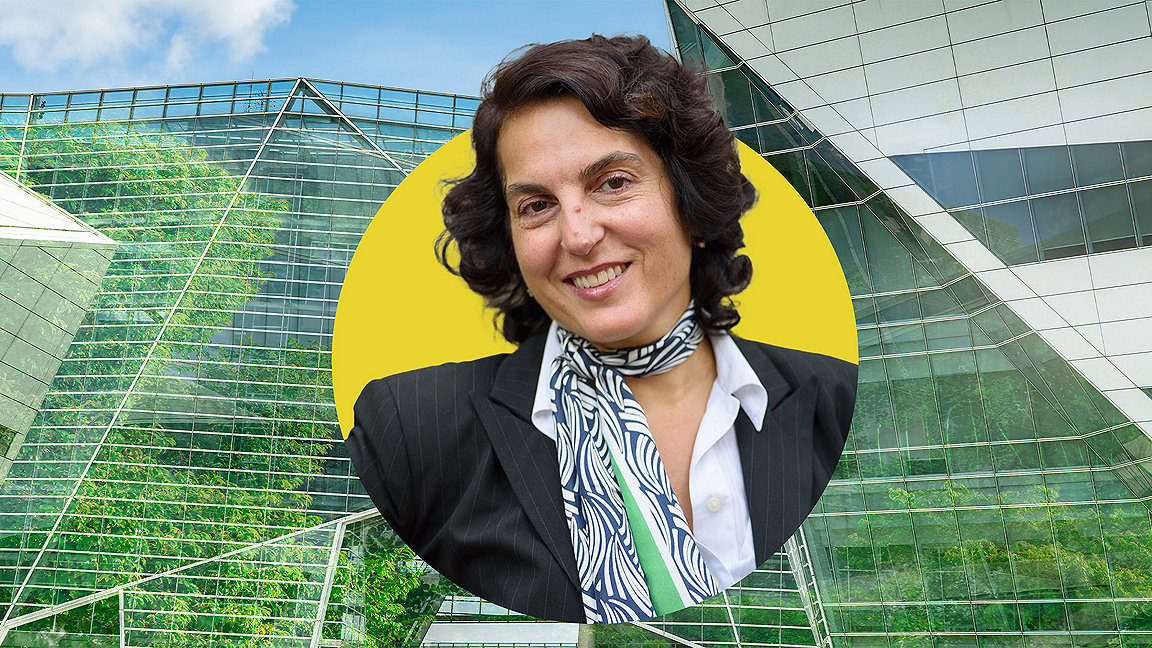
Headshot of Tina Paillet FRICS
This month, I’ll be officially installed as the 142nd President of RICS. It is a great honour but I’m also conscious of the weight of responsibility this role shoulders.
Humanity has never faced such an existential threat to our way of life: the climate crisis. Our institution’s commitment to uphold public interest – and the future of our planet is of the highest public interest – has never been so crucial.
You may be wondering why I choose to use this first column of my presidential year to talk about climate change. The facts are simple: over 40% of global greenhouse gas emissions come from the built environment, which uses over 50% of the world's primary resources and generates over a third of its waste. It is clear that we are an essential component in the fight against climate change and for the better protection of our planet’s resources and biodiversity.
Our contribution to the world’s environmental challenges is under scrutiny and this will likely only increase. However, as a profession, we have the opportunity to lead the industry, ensuring we meet these heightened expectations. In March, RICS will be joining the UN Environment Programme for its first ministerial forum on the built environment.
Our work at the forum will build on our recent attendance at COP28. I am energised about what I experienced there. The built and natural environment has come to the fore as a vital area for climate action. We are the main facilitator for decarbonising buildings and infrastructure, and for making our cities more resilient.
One of the highlights for our sector at COP28 was the launch of the Buildings Breakthrough Initiative. The UN Environment Programme has been joined by 28 countries, representing one-third of the world’s population and two-thirds of the world’s GDP, in a pledge to accelerate the transformation of the sector. This means making near-zero emissions and climate-resilient buildings the new normal by 2030. The ministerial meetings in March in Paris aim to develop these pledges into an action programme for the countries which have signed up, including the UK, France, the US and China. RICS will continue to work with governments and key international organisations to pave the way for decarbonisation and support our members on the commitments made.
A decisive decade
Already, with sector partners, we’ve jointly identified priorities for decarbonisation. If you’ve been following our work, you’ll see how our recently launched Whole Life Carbon Assessment Standard (WLCA 2nd edition) offers a ready-to-use solution to measure embodied and operational carbon in new buildings and retrofits, in a consistent and transparent way across a building’s lifecycle.
Each of you has a role to play in this decisive decade, in which planetary tipping points may be reached and global warming may go above the 1.5°C that the scientists of the Intergovernmental Panel on Climate Change (IPCC) have set as the limit beyond which climate effects become much harder to reverse. Home surveyors can flag the physical climate risks and mitigations to a future buyer so that these can be understood and budgeted for before purchase.
Quantity surveyors and development managers can use WLCA to balance costs and carbon efficiency to meet increasingly stringent carbon thresholds for planning permissions. Valuers and asset managers can anticipate, consider and manage the risk of an asset becoming ‘carbon stranded’ in the face of net zero compliance in the years to come. And the list goes on for other specialisms.
My vision as President – and that of the RICS strategy – is that the surveying profession will become the sought-after expert advisor on sustainability by providing data to inform decisions and build confidence in society’s efforts to mitigate and adapt to climate change.
This year, in the latter half of this decisive decade, and where time is of the essence, RICS’ role will be to equip the profession with the necessary skills, tools, knowledge and competencies to play a vital role in the delivery of a sustainable future. Promoting the expertise, experience and positive impact of the profession to create demand, thus creating a sustainable business environment for the profession and positioning it as a career of choice. Positioning RICS as a global leader in sustainability, trusted by all stakeholders and embodying its royal charter.
While I am hugely excited by the possibilities this offers, I also want to acknowledge that, for many members, 2024 may be another difficult year. When I talk to my own friends and colleagues in the industry, what I hear often reinforces the downbeat findings of our regular surveys, which flag high interest rates, escalating construction costs, decreasing values and geopolitical instability among the main concerns of our members.
RICS will continue to engage with governments, regulators and other sector partners to influence a supportive political and social environment for the industry. We’ll also continue to deliver events where you can discuss issues and opportunities with fellow professionals. If the challenges are more personal, Lionheart, the independent support organisation for RICS professionals, is also there for you.
“The built and natural environment has come to the fore as a vital area for climate action” Tina Paillet FRICS, RICS President
An innovative profession
This tough period will pass. For 156 years, RICS and the profession have adapted and innovated in the face of contemporary realities and new technologies, incorporating them into a community based on high standards and mutual support between members.
This is why I know sustainability, and decarbonisation in particular, can and will offer opportunities for our profession. Already, 40 countries have some form of mandatory reporting of carbon emissions, while many companies are choosing to report voluntarily. Carbon assessment is and will be a growth area. At RICS, we’re currently considering carbon assessment accreditation, and how we build carbon assessment into our APC competencies and CPD programme.
“Reducing waste and increasing reuse is good for both the environment and the bottom line” Tina Paillet FRICS, RICS President
There is also the potential from the circular economy, a topic I’ll return to in a future column. Reducing waste and increasing reuse is good for both the environment and the bottom line. Assessing structures for end-of-life cycle could reveal previously unrealised value, and this is another service that our profession can offer clients and employers.
Our goal is to ensure that professionals in the built environment are well equipped to take advantage of the huge opportunities presented by the need to quantify, manage, plan for, and report on sustainability. Because preparing for a more sustainable industry not only means you’re promoting a more resilient planet, but also future-proofing your career.
Get Modus features sent straight to your inbox by signing up for the newsletter.

